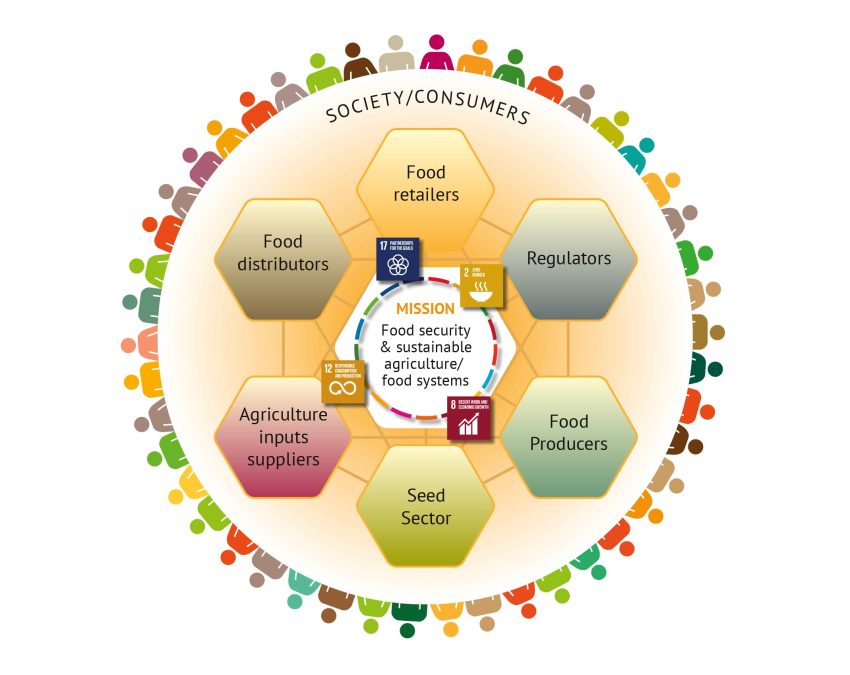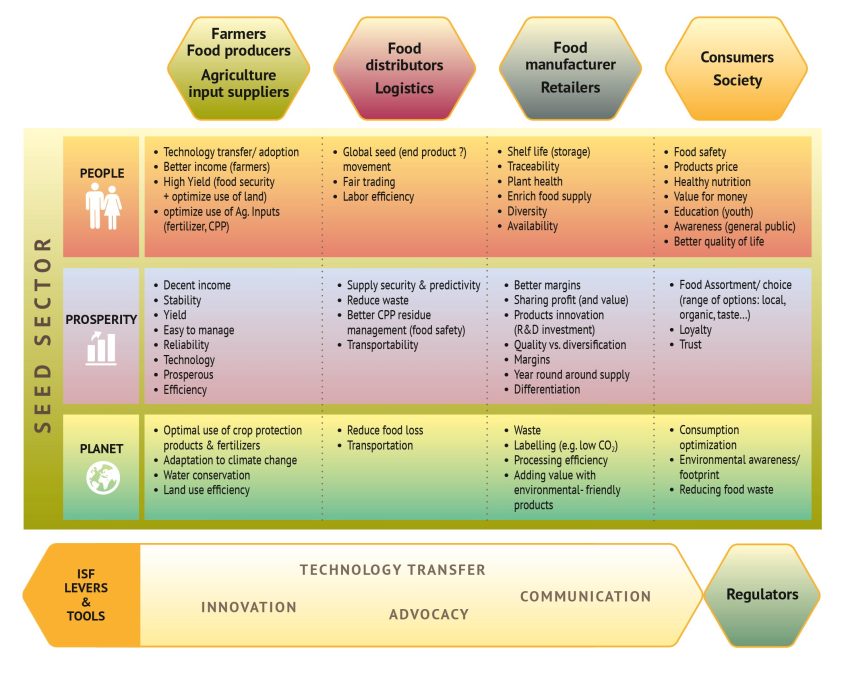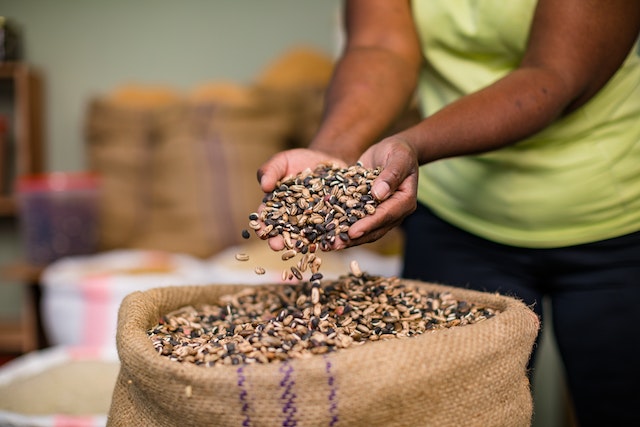The agrifood industry is fragmented and complex, but seeds are no doubt the starting point of most food production – 80 per cent according to FAO. Although each stakeholder in agri-food value chains may have a distinct purpose, most of them share the same challenge: to feed the world in a sustainable way. This creates opportunities for cooperation among various industries along the chain.
In the run-up to World Food Day and following the UN Food Systems Summit+2 Stocktaking Moment (UNFSS+2) held in Rome in July 2023, the global seed industry is evaluating progress made recently and how it could engage further with both international and national actors.

Since the UNFSS Roadmap was launched in 2021, there have been clear calls to action for the private sector to help transform food systems and generate game-changing solutions. More than 150 countries made commitments to drive progress. From championing greater participation and equity – especially amongst farmers, women, youth and Indigenous groups – to consumers buying food at the retailers’ shelves, all stakeholders in the food supply chain must contribute.
The global seed industry has been partnering for many years with governments, UN agencies, non-government organisations and stakeholders to highlight the contribution of seeds to global food security.
Seed sector contribution
The global seed industry supports people, prosperity and planet in multiple ways.

The International Seed Federation (ISF) and its members emphasise implementation at the national level through local transformation pathways and science, technology and innovation as accelerators to nature-positive solutions and livelihood improvers.
In 2023, a cross-sectoral project that will serve as a model for establishing seed systems was initiated in Rwanda by ISF in partnership with Fair Planet. The Seed Resilience project aims to bring knowledge on improved varieties and quality seeds on four crop pillars – vegetables, pulses, potatoes and cereals – to smallholder farmers and rural communities in Rwanda. At the same time, it allows the seed industry to engage in dialogue with policymakers on the importance of seed in food policies.
Five years from now, the project hopes to improve the uptake of new technologies and quality planting material to improve farmers’ yields and income. The project’s success can hopefully be replicated in other countries where farmers face access challenges to quality seeds.
Additionally, the Seeds for Food Coalition was launched to build a network of experience and knowledge on seed resilience and the enabling environment it takes for it to flourish. To promote sustainable seed systems for food systems transformation, the coalition will mobilise actions between public and private sectors on knowledge sharing, capacity development and promotion of a regulatory framework to support seed systems, highlighting its link with food. The initiative is set to establish a set of guidelines and benchmarks for effective seed systems in a variety of geographic and political contexts for farmers.
Concurrently, ISF and its members are working to establish food systems governance and dialogues that engage all sectors and stakeholders and promote increased engagement of businesses, including through public-private partnerships. Seed companies are continuing to invest in research, data, innovation and technology to support people’s livelihoods, nutrition and health, economic growth, climate change mitigation and reducing post-harvest losses.
From declaration to action on seeds
In the last three years, ISF has set out several frameworks for enhancing food systems transformation. Seed companies and seed associations signed the ISF Seed Declaration in 2021 setting the scene for the seed industry’s expanded engagement on sustainability and food security issues.
In 2022, ISF adopted a new organizational structure, creating a new Coordination Group on Value Chain and Environment and Social Responsibility. These Coordination Groups convene actors across the seed industry, promote the understanding of seed as a foundational contributor to sustainable food production and engage with agri-food value chains to promote the use of high-quality seed and improved varieties.
In 2023, ISF and its partners launched important projects to enhance access to seed innovations among smallholder farmers and advocate for regulatory environments that facilitate the movement of seed. The activities were designed to promote seed choice for farmers, enable seed resilience and improved crop productivity, and encourage technology adoption in the agricultural sector.
2024 and beyond: Call for further engagement with actors across the agri-food value chain
Seed sector actors work every day to deliver seed of innovative varieties to farmers worldwide across a wide range of crops, geographies, and environments. ISF and its members are committed to strengthening relationships between the food industry and plant breeding community and seed traders and retailers through dialogues and partnerships. Access to innovation also plays an important role in supporting sustainable and resilient food systems for the benefit of society.
Seeds are the basis for sustainable improvements in crop productivity and farmer incomes. Quality seeds strengthen resilience to climate change and reduce agriculture’s footprint. Celebrating its 100-year anniversary in 2024, ISF is committed over the next century to continue to serve both people and planet in smart and sustainable ways.




